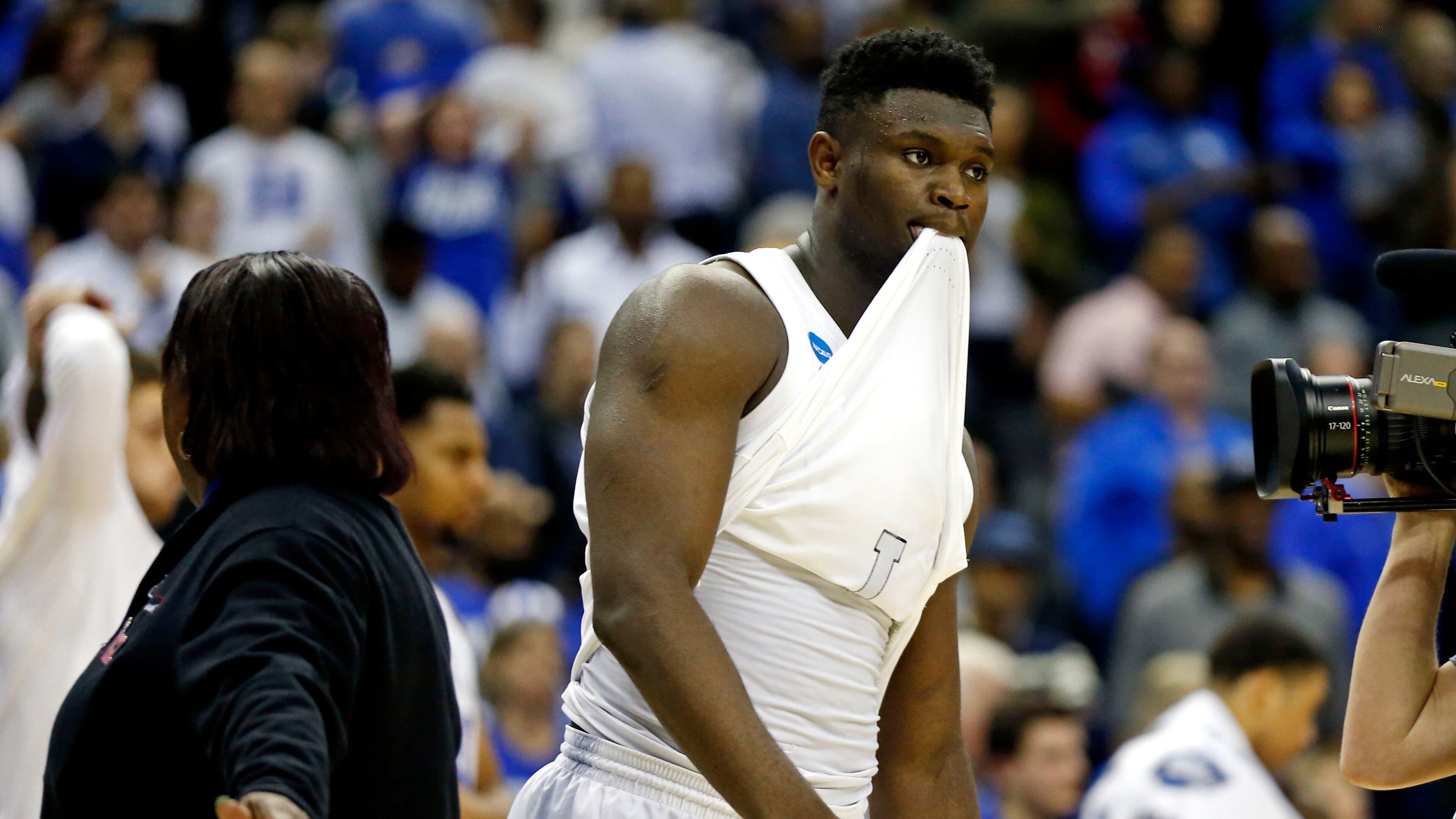What will college hoops look like after one-and-done?

The one-and-done rule, which everyone has always hated, could soon be done-and-gone. USA Today reported in February that the NBA had asked its players association to change the age limit for players from 19 to 18 come 2022. That would override one-and-done, which has existed since 2005 and rendered college basketball a de facto way station for the best recruits.
The weird part of one-and-done is that an NBA rule has served to cheapen the college game. Two proud programs — first Kentucky, then Duke — have come to rely on one-and-dones almost to the exclusion of all else. If you’re John Calipari and Mike Krzyzewski, it makes a semblance of sense: You take the cream of the freshman class and prep it for the pros and, because your freshmen are so good, you win a slew of games and maybe even a title; then you do it all again the next year, and the next, and the next ...
The upside is that we’ve gotten to see John Wall and DeMarcus Cousins and Anthony Davis and Karl-Anthony Towns and Kyrie Irving and Jabari Parker and Jayson Tatum and now Zion Williamson play, albeit briefly, in the sort of impassioned games the NBA cannot match. (We never saw LeBron or Kobe or K.G., who came along pre-one-and-done, in the Big Dance.) The ridiculous part was that we knew full well that, given their druthers, Zion and the others would have been earning millions for their services rather than being forced to attend class for six months.
The one-and-done rule didn’t create cheating in college hoops – that has been around forever – but it did exacerbate and refine it. Shoe companies got involved, as we see from the ongoing federal cases/trials, and looked for ways to stash players at a school before those players could turn pro and be paid, this time aboveboard, to wear their shoes. Nothing will ever render recruiting as pure as the driven snow, but the abolition of one-and-done would surely dial down the sleaze.
After one-and-done, college basketball will be what we saw in the days before it: No LeBron, no Kobe, no K.G. We in Georgia felt this more than most. Four of the biggest recruits from this state — Kwame Brown, Dwight Howard, Josh Smith and Lou Williams — jumped to the NBA. There was a clarity, maybe even a kind of purity, in those days, but there was also a lessening in the college product.
We’ve gone way past the time when the collegiate players stayed on campus four years. (Some among us recall when freshmen were ineligible for varsity play.) There will never be another amateur career like Bill Russell’s or Kareem Abdul-Jabbar’s or Bill Walton’s, and we know not to expect as much. But we did get to see those great players in college, and without one-and-done the greats won’t set foot on campus.
Say what you will about Zion — and by now we’ve said it all a thousand times — but he made Duke games must-see events. As oppressive as the hype was, he exceeded it. (In that way, he was indeed like LeBron.) For conspiracy theorists who believe that CBS rigs the NCAA tournament, we were just handed proof to the contrary. A Final Four with Zion would have been the highest-rated in decades; a Final Four with Virginia and Michigan State as its glamour teams will move no needles.
The failure of Zion and his super-frosh friends to reach the Final Four offers further evidence that the Kentucky/Duke method has run its course. When the Wildcats won the 2012 title with one-and-dones Davis, Michael Kidd-Gilchrist and Marquis Teague, they had sophomores Terrence Jones and Doron Lamb plus senior Darius Miller — of Maysville, Ky.! — filling essential roles. When the Blue Devils won with three one-and-dones in 2015, they had senior Quinn Cook and junior Amile Jefferson, plus non-one-and-done freshman Grayson Allen.
The Michigan State starting five that undid Duke included junior point guard Cassius Winston, senior shooter Matt McQuaid, sophomore big man Xavier Tillman, freshman forward Aaron Henry and the maker of the game-winning trey — fifth-year senior Kenny Goins. The play that begat Goins’ 3-pointer came off a halfcourt set after a timeout. Duke’s efforts to respond involved freshman RJ Barrett, maybe the second-most-gifted collegian, forcing the issue while the most-gifted collegian (Zion, duh) stood watching.
Michigan State performed as a team that had been to the Dance before, which it had. For Zion and Co., this was always going to be the first/last chance. Auburn’s splendid backcourt consists of Jared Harper, a junior, and Bryce Brown, a senior. Virginia starts three juniors, a sophomore and freshman Kihei Clark. Texas Tech starts a fifth-year senior, two sophomores and two grad transfers. There will be half as many freshmen starting in this Final Four as Duke had in its regular lineup.
After one-and-done, college basketball will be (another duh) much different. It will have a dearth of top-end talent, but it will be a game played by guys who want to be in college. It was no fault of Zion’s that an NBA rule essentially him a tourist – we can’t call one-and-dones mercenaries, given that mercenaries get paid – and it was fun for us, and from all appearances for him, that he made a brief stopover in Durham, N.C. But one-and-done has always felt wrong, and wrongs need righting.

